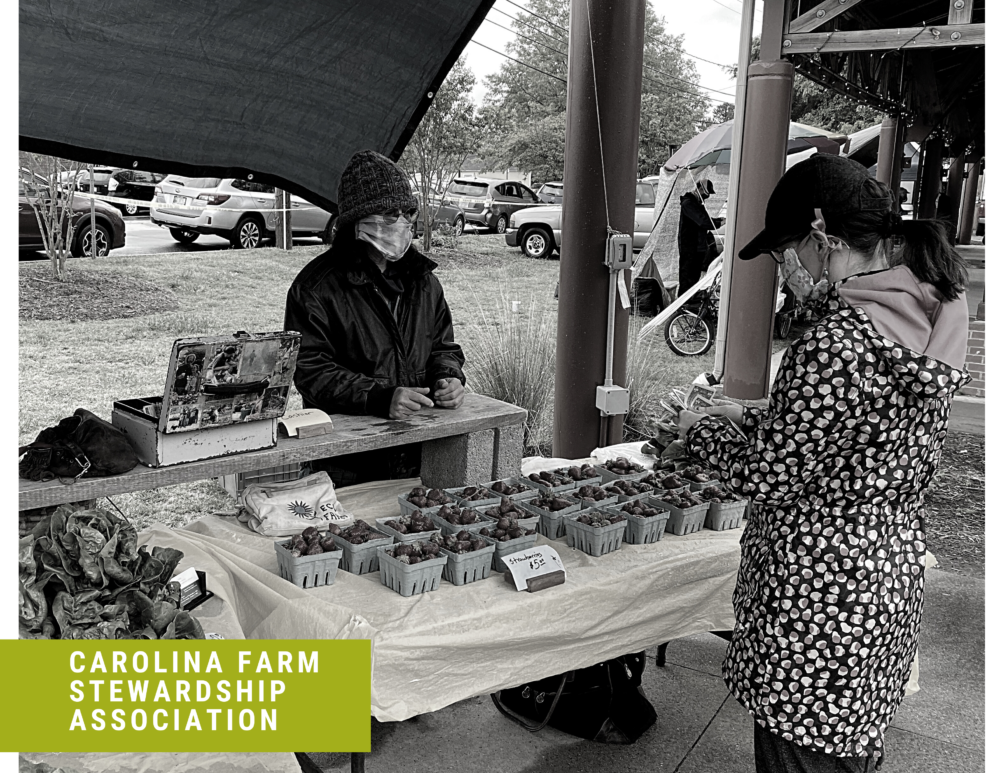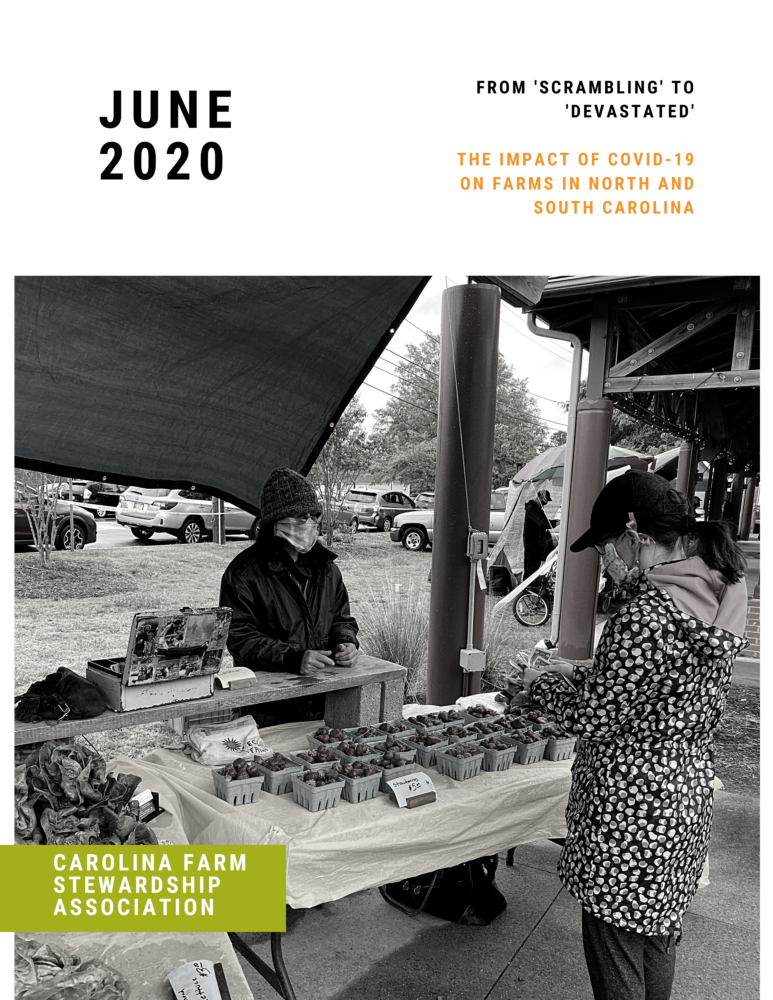by Roland McReynolds, CFSA Executive Director | Tuesday, Jun. 23, 2020—
The COVID-19 emergency has caused massive economic dislocations for food and agricultural producers in the United States, and small and medium-sized farms selling in local food markets are no exception. CFSA conducted a survey of local farms in the Carolinas to quantify those impacts. The survey was conducted through the CFSA website between April 10 and May 5, 2020, as the spring growing season was getting fully underway and stay-at-home orders were in place for nonessential workers in both North and South Carolina. The results show that small and mid-scale farms selling in local food markets are suffering greatly.
Weekly sales dropped for three-quarters of local farms in the Carolinas as a result of the COVID-19 pandemic, including one third that lost more than $1,000 per week. These sales declines are consistent across almost all local food marketing channels, sizes of farms, and types of crops and products. About 48% of the farms that responded have annual revenues between $25,000 and $250,000, and another 41% have sales of less than $25,000 per year, so consistent weekly losses at this scale are devastating to these businesses. Many farmers said they will be out of business if COVID-19’s effects last through the summer.
Download: The Impact of COVID-19 on Farms In North and South Carolina
Restaurants and agritourism were two of the top five sales channels for local farms, both of which were cut off by social distancing measures: 87% of farms with restaurant customers had declines in restaurant sales, and 79% of farms with agritourism saw that income drop. Farmers markets have been closed, delayed, and otherwise altered to implement social distancing, leading to drops in farmers market sales for 68% of farmers market vendors.
The farms that shifted to online marketing, CSAs, and other alternative direct-to-consumer channels reported increased labor and technology expenses are necessary to make the switch: these farms are spending more on labor to sell the same volume of crops. And pastured livestock farms reported that they can’t meet the new strong demand for their products, as consumers seek secure local sources of meat, because the Carolinas’ few independent meat processors can’t keep up with the surge. The waiting list for farms to get appointments at some processors runs into 2021.
Local food sales help small and mid-scale farms because they earn a larger share of consumers’ food dollars. Relief payments to farmers under the USDA’s Coronavirus Food Assistance Program pay farmers pennies per pound of unsold crops, which doesn’t cover small farms’ costs to produce them. To stay on the farm, many of the Carolinas’ local farmers need grants to make up for revenues lost due to COVID-19 in the next federal relief program.
CFSA will be sharing these results with policymakers to educate them about the damage the pandemic is doing to small farms, and the need for financial support to sustain local food systems through this crisis. Sign up for CFSA’s action alerts to keep up with our campaign and add your voice to the call for change.
Pictured on the report cover: Cindy Econopouly of Eco Farm in Chapel Hill, NC selling at the Carrboro Farmers Market



